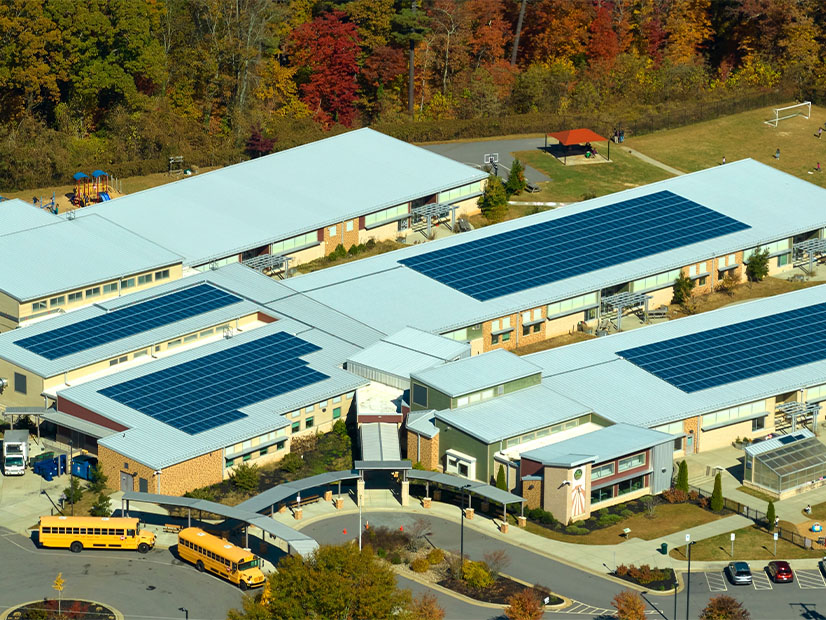The Virginia State Corporation Commission last week ruled that Dominion Energy overstepped its authority in requiring distributed solar for large customers to go through new processes that led to spikes in the cost of installation.
The Virginia Distributed Solar Alliance filed a complaint against the new procedures in June, alleging they overstepped the regulated utility’s authority, as the SCC has been looking into the issues around interconnection of distributed sources in other cases. The SCC last approved interconnection rules back in 2020 and it is now looking at additional changes.
The commission on Aug. 30 agreed to suspend the parameters and interconnection agreements until it wraps up its open proceedings looking into the issues, but it declined to “address the myriad of additional relief” sought by the solar group.
The group’s other requests can be taken up in other proceedings, the SCC said. It also noted that it was not taking lightly Dominion’s claims about safety and reliability, but that it lacked authority to implement the new processes without a prior order.
“Dominion should continue to take the actions necessary to maintain the immediate safety and reliability of its system; this may include, but need not be limited to, seeking specific authority from this commission in one or more formal proceedings,” the commission said.
The utility adopted new parameters for projects between 250 kW and 1 MW and projects that range from 1 to 3 MW in December 2022, but the solar group’s complaint focused on their impact on projects below 1 MW, which are midsized, nonresidential projects. The complaint alleged that the new rules have led to costs, delays and barriers to adding such distributed generation around Virginia.
The rules that were suspended by the SCC led to “unprecedented” costs and delays by potentially requiring distributed solar to pay for substation upgrades and dark fiber cable and relay panel equipment. Dark fiber costs between $150,000 and $200,000/mile; relay panels can cost $250,000 for equipment and potentially more than double that for engineering, mobilization and construction management.
The complaint listed a number of anecdotes, including one at the James River Juvenile Detention Center for Henrico County, where Dominion estimated $2.25 million in preliminary costs for a 686-kW system. Prince William County Schools faced similar costs on a 987-kW array it was planning. Both projects, and others owned by private firms, proved too expensive with the extra costs that Dominion assessed under the now-suspended rules.
Dominion had argued in a filing last month that it needs to update the rules as distributed generation has grown rapidly in Virginia since a law passed expanding its net energy metering program.
“As a result of these changes, more net metering generation, with higher capacity ratings, are now rapidly developing and penetrating the company’s electric power system,” the firm said. “The company has been tasked with integrating more net metering distributed energy resources, with higher capacity ratings, that are now permitted to produce up to 150% of the customer’s expected annual energy consumption.”
The parameters suspended by the SCC were meant to ensure Dominion’s ability to specify the equipment and technical specifications needed to establish safe and reliable interconnection, the company said.




